#a market for lemons
Text
Greenwashing set Canada on fire

On September 22, I'm (virtually) presenting at the DIG Festival in Modena, Italy. On September 27, I'll be at Chevalier's Books in Los Angeles with Brian Merchant for a joint launch for my new book The Internet Con and his new book, Blood in the Machine.

As a teenager growing up in Ontario, I always envied the kids who spent their summers tree planting; they'd come back from the bush in September, insect-chewed and leathery, with new muscle, incredible stories, thousands of dollars, and a glow imparted by the knowledge that they'd made a new forest with their own blistered hands.
I was too unathletic to follow them into the bush, but I spent my summers doing my bit, ringing doorbells for Greenpeace to get my neighbours fired up about the Canadian pulp-and-paper industry, which wasn't merely clear-cutting our old-growth forests – it was also poisoning the Great Lakes system with PCBs, threatening us all.
At the time, I thought of tree-planting as a small victory – sure, our homegrown, rapacious, extractive industry was able to pollute with impunity, but at least the government had reined them in on forests, forcing them to pay my pals to spend their summers replacing the forests they'd fed into their mills.
I was wrong. Last summer's Canadian wildfires blanketed the whole east coast and midwest in choking smoke as millions of trees burned and millions of tons of CO2 were sent into the atmosphere. Those wildfires weren't just an effect of the climate emergency: they were made far worse by all those trees planted by my pals in the eighties and nineties.
Writing in the New York Times, novelist Claire Cameron describes her own teen years working in the bush, planting row after row of black spruces, precisely spaced at six-foot intervals:
https://www.nytimes.com/2023/09/15/opinion/wildfires-treeplanting-timebomb.html
Cameron's summer job was funded by the logging industry, whose self-pegulated, self-assigned "penalty" for clearcutting diverse forests of spruce, pine and aspen was to pay teenagers to create a tree farm, at nine cents per sapling (minus camp costs).
Black spruces are made to burn, filled with flammable sap and equipped with resin-filled cones that rely on fire, only opening and dropping seeds when they're heated. They're so flammable that firefighters call them "gas on a stick."
Cameron and her friends planted under brutal conditions: working long hours in blowlamp heat and dripping wet bulb humidity, amidst clouds of stinging insects, fingers blistered and muscles aching. But when they hit rock bottom and were ready to quit, they'd encourage one another with a rallying cry: "Let's go make a forest!"
Planting neat rows of black spruces was great for the logging industry: the even spacing guaranteed that when the trees matured, they could be easily reaped, with ample space between each near-identical tree for massive shears to operate. But that same monocropped, evenly spaced "forest" was also optimized to burn.
It burned.
The climate emergency's frequent droughts turn black spruces into "something closer to a blowtorch." The "pines in lines" approach to reforesting was an act of sabotage, not remediation. Black spruces are thirsty, and they absorb the water that moss needs to thrive, producing "kindling in the place of fire retardant."
Cameron's column concludes with this heartbreaking line: "Now when I think of that summer, I don’t think that I was planting trees at all. I was planting thousands of blowtorches a day."
The logging industry committed a triple crime. First, they stole our old-growth forests. Next, they (literally) planted a time-bomb across Ontario's north. Finally, they stole the idealism of people who genuinely cared about the environment. They taught a generation that resistance is futile, that anything you do to make a better future is a scam, and you're a sucker for falling for it. They planted nihilism with every tree.
That scam never ended. Today, we're sold carbon offsets, a modern Papal indulgence. We are told that if we pay the finance sector, they can absolve us for our climate sins. Carbon offsets are a scam, a market for lemons. The "offset" you buy might be a generated by a fake charity like the Nature Conservancy, who use well-intentioned donations to buy up wildlife reserves that can't be logged, which are then converted into carbon credits by promising not to log them:
https://pluralistic.net/2020/12/12/fairy-use-tale/#greenwashing
The credit-card company that promises to plant trees every time you use your card? They combine false promises, deceptive advertising, and legal threats against critics to convince you that you're saving the planet by shopping:
https://pluralistic.net/2021/11/17/do-well-do-good-do-nothing/#greenwashing
The carbon offset world is full of scams. The carbon offset that made the thing you bought into a "net zero" product? It might be a forest that already burned:
https://pluralistic.net/2022/03/11/a-market-for-flaming-lemons/#money-for-nothing
The only reason we have carbon offsets is that market cultists have spent forty years convincing us that actual regulation is impossible. In the neoliberal learned helplessness mind-palace, there's no way to simply say, "You may not log old-growth forests." Rather, we have to say, "We will 'align your incentives' by making you replace those forests."
The Climate Ad Project's "Murder Offsets" video deftly punctures this bubble. In it, a detective points his finger at the man who committed the locked-room murder in the isolated mansion. The murderer cheerfully admits that he did it, but produces a "murder offset," which allowed him to pay someone else not to commit a murder, using market-based price-discovery mechanisms to put a dollar-figure on the true worth of a murder, which he duly paid, making his kill absolutely fine:
https://pluralistic.net/2021/04/14/for-sale-green-indulgences/#killer-analogy
What's the alternative to murder offsets/carbon credits? We could ask our expert regulators to decide which carbon intensive activities are necessary and which ones aren't, and ban the unnecessary ones. We could ask those regulators to devise remediation programs that actually work. After all, there are plenty of forests that have already been clearcut, plenty that have burned. It would be nice to know how we can plant new forests there that aren't "thousands of blowtorches."
If that sounds implausible to you, then you've gotten trapped in the neoliberal mind-palace.
The term "regulatory capture" was popularized by far-right Chicago School economists who were promoting "public choice theory." In their telling, regulatory capture is inevitable, because companies will spend whatever it takes to get the government to pass laws making what they do legal, and making competing with them into a crime:
https://pluralistic.net/2022/06/13/public-choice/#ajit-pai-still-terrible
This is true, as far as it goes. Capitalists hate capitalism, and if an "entrepreneur" can make it illegal to compete with him, he will. But while this is a reasonable starting-point, the place that Public Choice Theory weirdos get to next is bonkers. They say that since corporations will always seek to capture their regulators, we should abolish regulators.
They say that it's impossible for good regulations to exist, and therefore the only regulation that is even possible is to let businesses do whatever they want and wait for the invisible hand to sweep away the bad companies. Rather than creating hand-washing rules for restaurant kitchens, we should let restaurateurs decide whether it's economically rational to make us shit ourselves to death. The ones that choose poorly will get bad online reviews and people will "vote with their dollars" for the good restaurants.
And if the online review site decides to sell "reputation management" to restaurants that get bad reviews? Well, soon the public will learn that the review site can't be trusted and they'll take their business elsewhere. No regulation needed! Unleash the innovators! Set the job-creators free!
This is the Ur-nihilism from which all the other nihilism springs. It contends that the regulations we have – the ones that keep our buildings from falling down on our heads, that keep our groceries from poisoning us, that keep our cars from exploding on impact – are either illusory, or perhaps the forgotten art of a lost civilization. Making good regulations is like embalming Pharaohs, something the ancients practiced in mist-shrouded, unrecoverable antiquity – and that may not have happened at all.
Regulation is corruptible, but it need not be corrupt. Regulation, like science, is a process of neutrally adjudicated, adversarial peer-review. In a robust regulatory process, multiple parties respond to a fact-intensive question – "what alloys and other properties make a reinforced steel joist structurally sound?" – with a mix of robust evidence and self-serving bullshit and then proceed to sort the two by pantsing each other, pointing out one another's lies.
The regulator, an independent expert with no conflicts of interest, sorts through the claims and counterclaims and makes a rule, showing their workings and leaving the door open to revisiting the rule based on new evidence or challenges to the evidence presented.
But when an industry becomes concentrated, it becomes unregulatable. 100 small and medium-sized companies will squabble. They'll struggle to come up with a common lie. There will always be defectors in their midst. Their conduct will be legible to external experts, who will be able to spot the self-serving BS.
But let that industry dwindle to a handful of giant companies, let them shrink to a number that will fit around a boardroom table, and they will sit down at a table and agree on a cozy arrangement that fucks us all over to their benefit. They will become so inbred that the only people who understand how they work will be their own insiders, and so top regulators will be drawn from their own number and be hopelessly conflicted.
When the corporate sector takes over, regulatory capture is inevitable. But corporate takeover isn't inevitable. We can – and have, and will again – fight corporate power, with antitrust law, with unions, and with consumer rights groups. Knowing things is possible. It simply requires that we keep the entities that profit by our confusion poor and thus weak.
The thing is, corporations don't always lie about regulations. Take the fight over working encryption, which – once again – the UK government is trying to ban:
https://www.theguardian.com/technology/2023/feb/24/signal-app-warns-it-will-quit-uk-if-law-weakens-end-to-end-encryption
Advocates for criminalising working encryption insist that the claims that this is impossible are the same kind of self-serving nonsense as claims that banning clearcutting of old-growth forests is impossible:
https://twitter.com/JimBethell/status/1699339739042599276
They say that when technologists say, "We can't make an encryption system that keeps bad guys out but lets good guys in," that they are being lazy and unimaginative. "I have faith in you geeks," they said. "Go nerd harder! You'll figure it out."
Google and Apple and Meta say that selectively breakable encryption is impossible. But they also claim that a bunch of eminently possible things are impossible. Apple claims that it's impossible to have a secure device where you get to decide which software you want to use and where publishers aren't deprive of 30 cents on every dollar you spend. Google says it's impossible to search the web without being comprehensively, nonconsensually spied upon from asshole to appetite. Meta insists that it's impossible to have digital social relationship without having your friendships surveilled and commodified.
While they're not lying about encryption, they are lying about these other things, and sorting out the lies from the truth is the job of regulators, but that job is nearly impossible thanks to the fact that everyone who runs a large online service tells the same lies – and the regulators themselves are alumni of the industry's upper eschelons.
Logging companies know a lot about forests. When we ask, "What is the best way to remediate our forests," the companies may well have useful things to say. But those useful things will be mixed with actively harmful lies. The carefully cultivated incompetence of our regulators means that they can't tell the difference.
Conspiratorialism is characterized as a problem of what people believe, but the true roots of conspiracy belief isn't what we believe, it's how we decide what to believe. It's not beliefs, it's epistemology.
Because most of us aren't qualified to sort good reforesting programs from bad ones. And even if we are, we're probably not also well-versed enough in cryptography to sort credible claims about encryption from wishful thinking. And even if we're capable of making that determination, we're not experts in food hygiene or structural engineering.
Daily life in the 21st century means resolving a thousand life-or-death technical questions every day. Our regulators – corrupted by literally out-of-control corporations – are no longer reliable sources of ground truth on these questions. The resulting epistemological chaos is a cancer that gnaws away at our resolve to do anything about it. It is a festering pool where nihilism outbreaks are incubated.
The liberal response to conspiratorialism is mockery. In her new book Doppelganger, Naomi Klein tells of how right-wing surveillance fearmongering about QR-code "vaccine passports" was dismissed with a glib, "Wait until they hear about cellphones!"
https://pluralistic.net/2023/09/05/not-that-naomi/#if-the-naomi-be-klein-youre-doing-just-fine
But as Klein points out, it's not good that our cellphones invade our privacy in the way that right-wing conspiracists thought that vaccine passports might. The nihilism of liberalism – which insists that things can't be changed except through market "solutions" – leads us to despair.
By contrast, leftism – a muscular belief in democratic, publicly run planning and action – offers a tonic to nihilism. We don't have to let logging companies decide whether a forest can be cut, or what should be planted when it is. We can have nice things. The art of finding out what's true or prudent didn't die with the Reagan Revolution (or the discount Canadian version, the Mulroney Malaise). The truth is knowable. Doing stuff is possible. Things don't have to be on fire.



If you'd like an essay-formatted version of this post to read or share, here's a link to it on pluralistic.net, my surveillance-free, ad-free, tracker-free blog:
https://pluralistic.net/2023/09/16/murder-offsets/#pulped-and-papered
#pluralistic#logging#pulp and paper#ontario#greenwashing#a market for lemons#incentives matter#capitalism#late-stage capitalism#climate emergency#wildfires#canada#canpoli#ontpoli#carbon offsets#self-regulation#nerd harder#epistemological chaos#regulatory capture#Claire Cameron#pines in lines
3K notes
·
View notes
Text


by eleni_tsalki
2K notes
·
View notes
Text
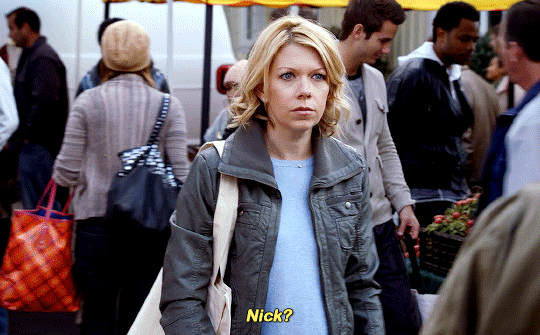
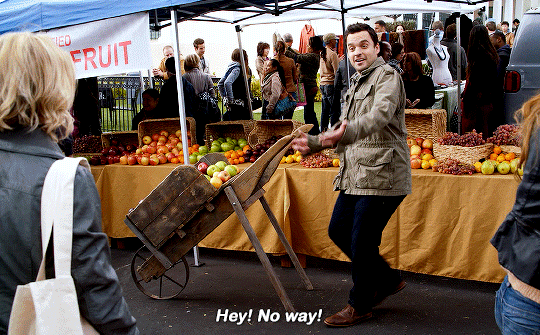

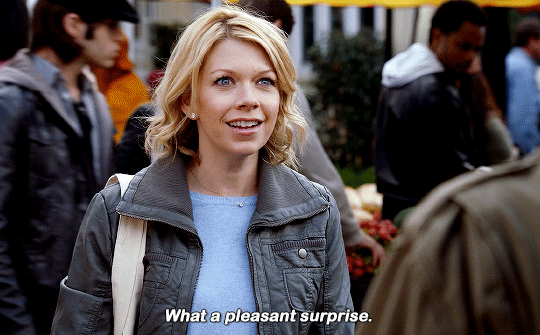

I don't deal with exes. They're part of the past. You burn 'em swiftly and you give their ashes to Poseiden.
NEW GIRL | 2014
Exes |3.15
#new girl#newgirledit#tvedit#sitcomedit#jake johnson#ours#farmers market fruit#by lemon#henricavyll#userdiana#userkd#underbetelgeuse
313 notes
·
View notes
Text
Yesterday i lost my favorite sippy cup on campus :((((
#omw there right now#im gonna be asking everyone and their moms for it PLEASE let it be in lost & found please please please#its orange!! one of my favorite colors#i make my mint & pineapple & lemon flavored water on it :(((#idk if i could get another one like that... i bought it at the flea market and stock is fickle like that
25 notes
·
View notes
Text


Blorbo time!!!!
#pizzahead#pizza tower spoilers#pizza tower#silly silly#sketchy doodles#dorf's art#pizzahead listens to lemon deamon and his favourite song is redesign your logo#it makes him absolutly manic and insane (affectionate)#i also think it would make him hyperfocus on marketing statistics and stuff cause i imagine its a special interest of his#love him#dont you trust this so so trusty piece of pizza pie?
59 notes
·
View notes
Text
8/31/23
I got a couple of lemon cucumbers at the market today.




#lemon#lemon cucumber#honeycombhank#healthy diet#cucumbers#yellow#healthy snack#market produce#vegetables#fresh food
16 notes
·
View notes
Text
"hunter can get a job at McDonald's in the human realm", "Amity can work at the local library" well Gus can run a lemonade stand
#the owl house#the image of gus learning that lemonade stands are a tradition among human children and setting one up is hysterical to me#he is literally 12. he's a little boy#let him sell lemonade from a cardboard stand!#willow grows him the lemons but feels guilty abt it because they don't occur naturally in gravesfield and they might become invasive#she's very worried abt natural ecosystems but also. she gets more money at the farmers market if she sells rare fruit#she carries the guilt with her everywhere she goes#vee helps run the lemonade stand. neither her nor gus understand the appeal of lemonade. they keep serving it warm to ppl
191 notes
·
View notes
Text
I need him so bad...(diet coke with ice and a lemon slice)
7 notes
·
View notes
Photo

Lemons - Guinea Bissau, 2020
#picoftheday#travel#guinea bissau#africa#original photographers#photographers on tumblr#street market#street life#lemons#streetphoto color#street photography#photooftheday
16 notes
·
View notes
Text
started my new job this week and its already intense and so busy.
the good news is that theres a guy in warehouse that looks like a burlier version of price.
i need to find an array of excuses to mosey on down from the office and camp out in warehouse. he amends a lot of the surgical equipment so we already know the man’s handy.
10 notes
·
View notes
Photo

Winter Musings 2023
iPhoneXR Hipstamatic Photography
Original Photographers
Photographers On Tumblr
Lowy Lens, Blanko 일 Film, No Flash
#hipstamatic#original photographers#photographers on tumblr#fresh lemons#farmers market#winter#art#capiolumen#iphone#iphonexR#iphotography#lowy lens#blanko 일 film#no flash
24 notes
·
View notes
Text
Worker misclassification is a competition issue
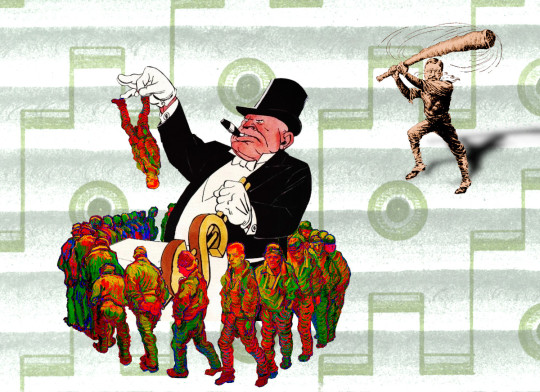
If you'd like an essay-formatted version of this post to read or share, here's a link to it on pluralistic.net, my surveillance-free, ad-free, tracker-free blog:
https://pluralistic.net/2024/02/02/upward-redistribution/#bedoya

The brains behind Trump's stolen Supreme Court have detailed plans: they didn't just scheme to pack the court with judges who weren't qualified for – or entitled to – a SCOTUS life-tenure, they also set up a series of cases for that radical court to hear.
Obviously, Dobbs was the big one, but it's only part of a whole procession of trumped-up cases designed to give the court a chance to overturn decades of settled law and create zones of impunity for America's oligarchs and the monopolies that provide them with wealth and power.
One of these cases is Jarkesy, a case designed to allow SCOTUS to euthanize every agency in the US government, stripping them of their powers to fight corporate crime:
https://www.americanprogress.org/article/sec-v-jarkesy-the-threat-to-congressional-and-agency-authority/
The argument goes, "Congress had the power to spell out every possible problem an agency might deal with and to create a list of everything they were allowed to do about these problems. If they didn't, then the agency isn't allowed to act."
This is an Objectively Very Stupid argument, and it takes a heroic act of motivated reasoning to buy it. The whole point of expert agencies is that they're experts and that they might discover new problems in American life, and come up with productive ways of fixing them. If the only way for an agency to address a problem is to wait for Congress to notice it and pass a law about it, then we don't even need agencies – Congress can just be the regulator, as well as the lawmaker.
If there was any doubt that Congress created the agencies as flexible and adaptive hedges against new threats and problems, then the legislative history of the FTC Act should dispel it.
Congress created the FTC through the FTCA because the courts kept misinterpreting its existing antitrust laws, like the Sherman Act. Companies would engage in the most obvious acts of naked, catastrophic fuckery, and judges would say, "Welp, because Congress didn't specifically ban this conduct, I guess it's OK."
So Congress created the FTC with an Act that included a broad authority to investigate and punish "unfair methods of competition." They didn't spell these out – instead, they explicitly said (in Section 5) that it was the FTC's job to determine whether something was unfair, and to act on it:
https://pluralistic.net/2023/01/10/the-courage-to-govern/#whos-in-charge
The job of the FTC is to investigate unfair conduct before it becomes such a problem that Congress takes action, and to head that conduct off so that it never rises to the level of needing Congressional intervention.
Now, it's true that since the Reagan years, the FTC has grown progressively less interested in using this power, but that's broadly true of all of America's corporate watchdogs. But as the public all over the world has grown ever more furious about corporate abuses and oligarchic wealth, governments everywhere have rediscovered their role as a public protector.
In America, the Biden administration altered the course of history with the appointment of new enforcers in the key anti-monopoly agencies: the FTC and the DOJ's antitrust division. But more importantly, the Biden admin created a detailed, technical plan to use every agency's powers to fight monopoly, in a "whole of government" approach:
https://www.eff.org/deeplinks/2021/08/party-its-1979-og-antitrust-back-baby
Now, this can give rise to seeming redundancies. Take labor issues. The NLRB is a (potentially) powerful regulator that had been in a coma for decades, but has awoken and taken up labor rights with a fervor and cunning that is a delight to behold:
https://pluralistic.net/2023/09/06/goons-ginks-and-company-finks/#if-blood-be-the-price-of-your-cursed-wealth
At the same time, the FTC has also taken up labor rights, using its much broader powers to do things like ban noncompetes nationwide, unshackling workers from bosses who claim the right to veto who else they can work for:
https://pluralistic.net/2022/02/02/its-the-economy-stupid/#neofeudal
But the NLRB doesn't make the FTC redundant, or vice-versa. The NLRB's role is principally reactive, punishing wrongdoing after it occurs. But the FTC has the power to intervene in incipient harms, labor abuses that have not yet risen to the level of NLRB enforcement or new acts of Congress.
This case is made beautifully in Alvaro Bedoya's speech "'Overawed': Worker Misclassification as a Potential Unfair Method of Competition," delivered to the Law Leaders Global Summit in Miami today:
https://www.ftc.gov/system/files/ftc_gov/pdf/Overawed-Speech-02-02-2024.pdf
Bedoya describes why the FTC has turned its attention to the problem of "worker misclassification," in which employees are falsely claimed to be contractors, and thus deprived of the rights that workers are entitled to. Worker misclassification is rampant, and it transfers billions from workers to employers every year. As Bedoya says, 10-30% of employers engage in worker misclassification, allowing them to dodge payment for overtime, Social Security, workers' comp, unemployment insurance, healthcare, retirement and even a minimum wage. Each misclassified worker is between $6k-18k poorer thanks to this scam – a typical misclassified worker sees a one third decline in their earning power. And, of course, each misclassified worker's boss is $6k-$18k richer because of this scam.
It's not just wages, it's workplace safety. One of the most dangerous jobs in the country is construction worker, and worker misclassification is rampant in the sector. That means that construction workers are three times more likely than other workers to lack health insurance.
What's more, misclassified workers can't form unions, because their bosses' fiction treats them as independent contractors, not employees, which means that misclassified construction workers can't join trade unions and demand health-care, or safer workplaces.
Contrast this with, say, cops, who have powerful "unions" that afford them gold-plated health care and lavish compensation, even for imaginary ailments like "contact overdoses" from touching fentanyl – a medical impossibility that still entitles our nation's armed bureaucrats to handsome public compensation:
https://pluralistic.net/2022/01/27/extraordinary-popular-delusions/#onshore-havana-syndrome
Cops have far safer jobs than construction workers, but cops don't get misclassified, so they are able to collect benefits that no other worker – public or private – can hope for.
Not every employer wants to cheat and maim their employees, of course. In Bedoya's speech, he references Sandie Domando, an executive VP at a construction company in Palm Beach Gardens. Domando's company keeps its employees on its books, giving them health-care and other benefits. But when she started bidding against rival firms for jobs funded by the covid stimulus, she couldn't compete – two thirds of those jobs went to other firms that were able to put in cheaper bids. Those bids were cheaper because they were defrauding their workers by misclassifying them. Thus, publicly funded projects were overwhelmingly handed over to fraudulent companies. Fraud becomes a fitness-factor for winning jobs. It's a market for lemons – among employers.
Employee misclassification is a pure transfer from workers to bosses. Bedoya recounts the story of Samuel Talavera, Jr, a short-haul trucker who worked for decades in the Port of Los Angeles. For decades, his job paid well: enough to support his family and even take his kids to Disneyland now and again.
But in 2010, his employer reclassified him as a contractor. They ordered him to buy a new truck – which they financed on a lease-purchase basis – and put him to work for 16 hours stretches in shifts lasting as much as 20 hours per day. Talavera couldn't pick his own hours or pick his routes, but he was still treated as an independent contractor for payroll and labor protection purposes.
This lead to an terrible decline in Talavera's working conditions. He gave up going home between shifts, sleeping in his cab instead. His pay dropped through the floor, thanks to junk-fees that relied on the fiction that he was a contractor. For example, his boss started to charge him rent on the space his truck took up while he was standing by for a job at the port. Other truckers at the port saw paycheck deductions for the toilet-paper in the bathrooms!
Talavera's take-home pay dropped so low that he was bringing home a weekly wage of $112 or $33 (one week, his pay amounted to $0.67). His wife had to work three jobs, and they still had to declare bankruptcy to avoid losing their home. When Talavera's truck needed repairs he couldn't afford, his boss fired him and took back the truck, and Talavera was out the $78,000 he'd paid into it on the lease-purchase plan.
This story – and the many, many others like it from the Port of LA – paint a clear picture of the transfer of wealth from workers to their bosses that comes with worker misclassification. The work that Talavera did in the Port of LA didn't get less valuable when he was misclassified – but the share of that value that Talavera received dropped to as little as $0.67/week.
Worker misclassification is rampant across many sectors, but its handmaiden is technology. The fiction of independence is much easier to maintain when the fine-grained employer-employee control is mediated by an app (think of Uber):
https://pluralistic.net/2023/04/12/algorithmic-wage-discrimination/#fishers-of-men
That's why those scare-stories that AI trucks were going to make truckers obsolete and create an employment crisis were such toxic nonsense. Not only are we unlikely to see self-driving trucks, but the same investors that back AI technology are making bank on companies that practice worker misclassification through the "it's not a crime if we do it with an app" gambit:
https://pluralistic.net/2024/01/11/robots-stole-my-jerb/#computer-says-no
By focusing our attention on a hypothetical employment crisis that will supposedly be caused by future AI developments, tech investors can distract us from the real employment crisis that's created by app-enabled worker misclassification, which is also the source of much of the capital they're plowing into AI.
That's why the FTC's work on misclassification is so urgent. Misclassification is a scam that hurts workers and creates oligarchic power – and it's also a mass-extinction event for good companies that don't cheat their workers, because those honest companies can't compete.
Worker misclassification is having a long-overdue and much needed moment. The revolutionary overthrow of the rotten old leadership at the Teamsters was caused, in part, by a radical wing that promised to focus the Teamsters' firepower on fighting worker misclassification:
https://pluralistic.net/2021/11/19/hoffa-jr-defeated/#teamsters-for-a-democratic-union
This has become a focus of labor organizers all around the world, as worker misclassification-via-smartphone has infected labor markets everywhere:
https://pluralistic.net/2021/09/22/kropotkin-graeber/#an-injury-to-one
Bedoya's speech is a banger, and it reminds us that labor rights and anti-monopoly have always been part of the same project: to rein in corporate power and protect workers from the insatiable greed of the capital class:
https://pluralistic.net/2023/04/14/aiming-at-dollars/#not-men
#pluralistic#automation panic#automation#scotus#market for lemons#worker misclassification#ftc#competition#antitrust#trustbusting#ftc act#ftc 5#unions#labor#jarksey#alvaro bedoya#nlrb#whole of government
364 notes
·
View notes
Text
Me, seeing a story start with "x didn't/had never/couldn't believe in God" for the 234th time: Wow, how original. How about you start with "x believed in God" instead to spice up and confuse your audience instead?
#lemon duck quacks#you know it's very funny to see how many books and characters have them say that#i think in old times it was meant as some sort of shock value#however in a westernized society that's not something special#like reading a modern story that's not marketed as religious I'll almost always assume they're aatheists or agnostics#unless said otherwise
4 notes
·
View notes
Photo


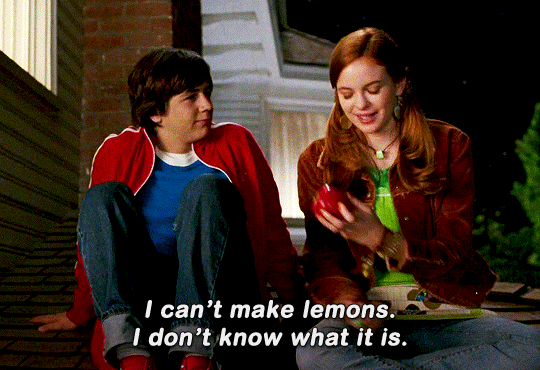
SKY HIGH (2005) dir. Mike Mitchell
#filmedit#userleo#userangela#henricavyll#underbetelgeuse#userrobin#chewieblog#userstream#throwbacklr#dailyflicks#moviegifs#cinemapix#sky high#ours#farmers market fruit#apple#lemon#by lychee
2K notes
·
View notes
Text

black & orange salad 🫒
4 x 4 in/ alcohol ink on paper
instagram
progress under the cut 🍊






#art#oranges#copic#alcohol markers#sketchbook#summer#fruit#olives#progress#im lying they were the officeworks homebrand 'grpahic design markets'#i usually hate copic & such but work wants me to demonstrate rendering w/ them for some student assessments#i still dont have the correct paper though so all my shit is getting stained 🤪#so this was a lil study 😊 annoyingly i enjoyed it & am now questioning my distaste for copics . . .#sidenote: black olives + mandarin + fresh herbs + lemon juice...#extremely tart but extremely refreshing little half sweet half savoury salad. hoghly recommend.#id in alt
3 notes
·
View notes
Text
youtube
MY MASS ATTACK IS DONE!!!
aaa this was crazy insane to work on... i was a little overambitious but i think i still did good! i hope everyone involved enjoys it too <3
#zilluart#more art fight arts to come#i just got excited about this one so bumped it to the top of my queue#digital art#furry#furry art#avali#artfight#mass attack#animation#art video#market#marketland#stalls#lemon demon#artfight mass attack#artfight 2023#vampires vs werewolves#team vampire#team werewolf#Youtube
13 notes
·
View notes